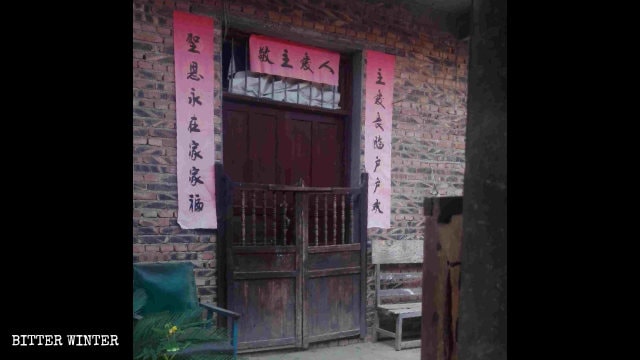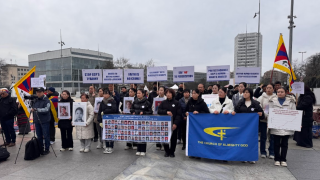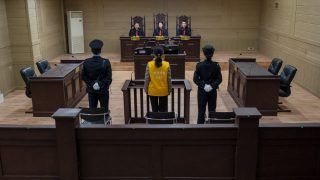The CCP continues to suppress places of worship that refuse to be governed by the state.
by Zheng Jie
Since the new Regulations on Religious Affairs came into force in 2018, the Catholic churches that are not part of the Chinese Patriotic Catholic Association and don’t have official registration certificates have been deemed illegal. The signing of the Vatican-China Deal of 2018 didn’t help the already difficult situation of Catholic dissidents, who continue to be harassed and persecuted by the CCP.
At the end of October 2019, in just ten days, the government of Baochang town in Taibus Banner of Xilingol League, a prefecture-level administrative unit in Inner Mongolia, shut down four Catholic churches refusing to be governed by the state. Law enforcement officers ordered the people in charge of them to stop all activities at their venues and remove religious symbols and signs.
A Catholic church, established over 40 years ago in Nanyang, a prefecture-level city in the central province of Henan, was raided by seven local government officials in March last year for being “unlicensed.” According to a church member, the intruders smashed tables, chairs, and the podium in the church and ransacked the priest’s residence. More than 400 Bibles, loudspeakers, and other valuables were confiscated. The person in charge of the church, in his 70s, rebuked the officials for acting so brutally. In response, one of them waved his fists, wanting to attack the elderly man, but was stopped by some onlookers. “God is watching what humans are doing, and CCP’s evildoing will not be tolerated,” a local believer said with anger.
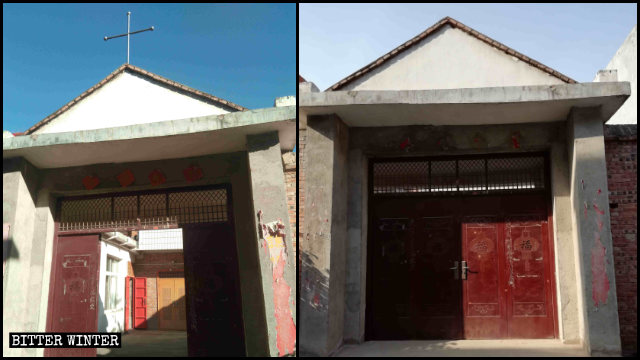
At the end of 2018, the only Catholic church not run by the state in Zhaozhou county of Daqing, a prefecture-level city in the northeastern province of Heilongjiang, was closed after government employees cut off the church’s electricity supply. Two HD surveillance cameras were subsequently installed on electric poles outside to monitor if believers don’t return to the church.
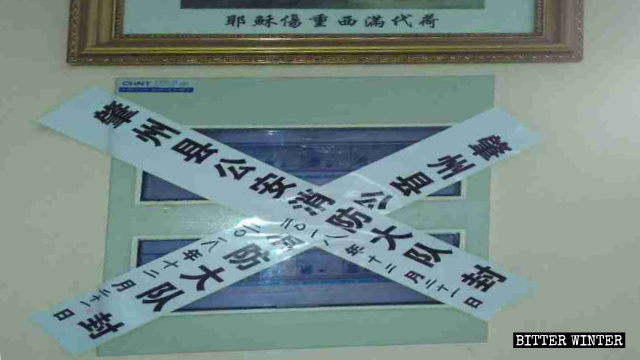
According to a congregation member, the church was first ordered to be closed down in early 2018 as an “unlicensed meeting venue that organizes illegal worship meetings.” But the congregation insisted on continuing to meet in the church, so the government came up with a pretext that the church had “substandard fire control measures.” However, a staff member in the local Fire Prevention Bureau said that the church does not need such high-standard fire prevention equipment as the officials demanded. In reality, he said, the local United Front Work Department had ordered to shut down the church.
The spacious church, built with the congregation’s donations, 400,000 RMB (about $ 60,000) in total, was shut down after only three years of existence, and believers now have to assemble in a small and crowded venue. But the government continues to harass them. In July 2019, the owner of the new place was threatened to be fined from 2,000 to 5,000 RMB (about $ 280 to 560) if she continued providing her property for gatherings.

In April 2019, the police raided a non-approved Catholic church in the county-level city of Shenzhou in the northern province of Hebei. Officers ordered the congregation to stop assembling and clear up the church because it was “holding illegal gatherings.” Otherwise, the church property would be confiscated, and a fine of 20,000 RMB (about $ 2,800) imposed. To protect religious symbols and images, believers moved them and closed the church.
A similar fate befell the Fuyuanju Church in the Roman Catholic Diocese of Ji’an in the southeastern province of Jiangxi. In March 2019, the local government shut it down as an “unlicensed venue” and threatened to fine the congregation if they met again. After the church was closed down, government employees repeatedly visited the venue to make sure that no meetings are held there. They also went to the homes of believers, ordering them “to believe in the Communist Party, if you need to believe in something,” and be obedient, threatening to send them to jail if they express their religious belief. More than 40 church members now have nowhere to congregate.
